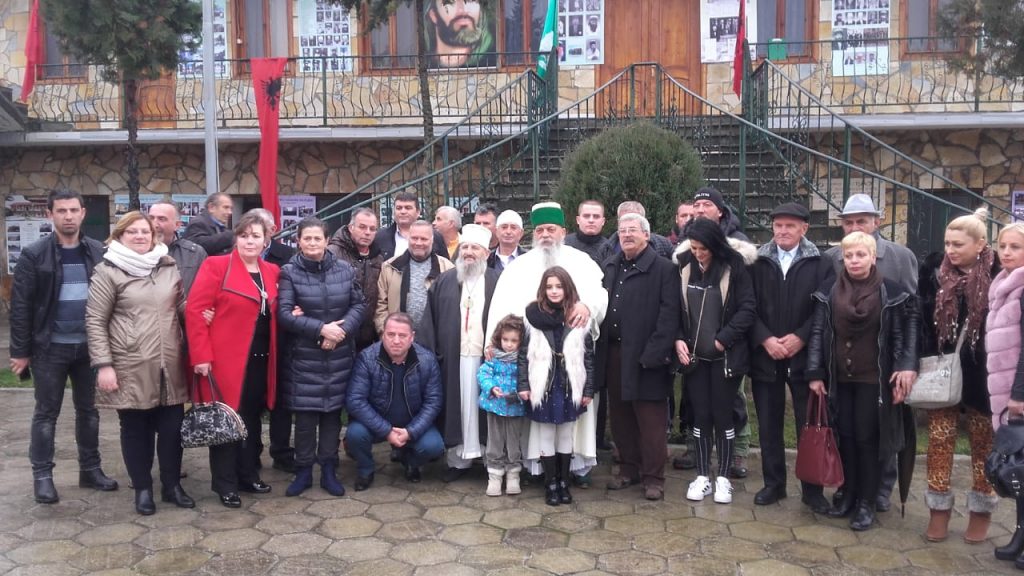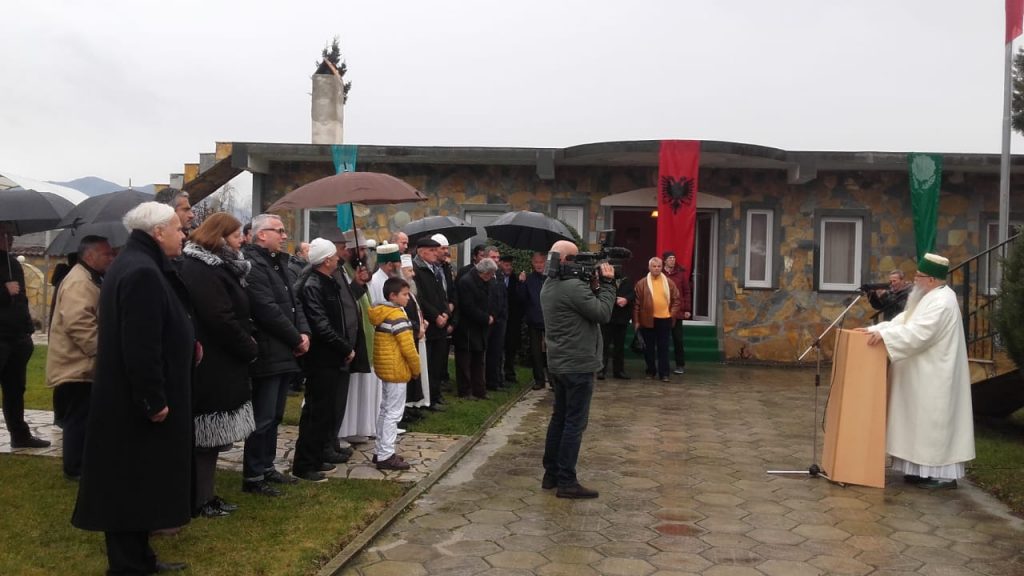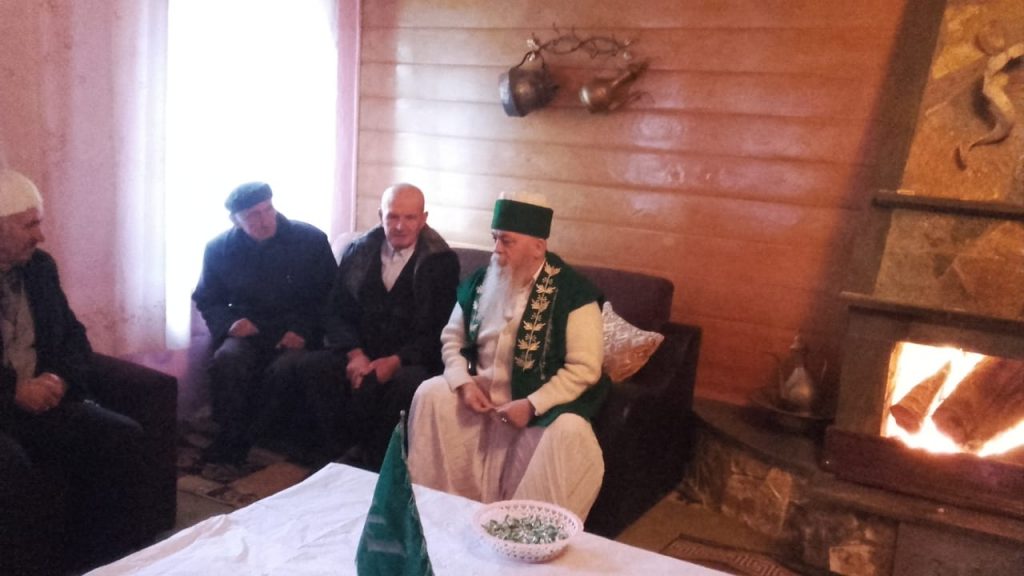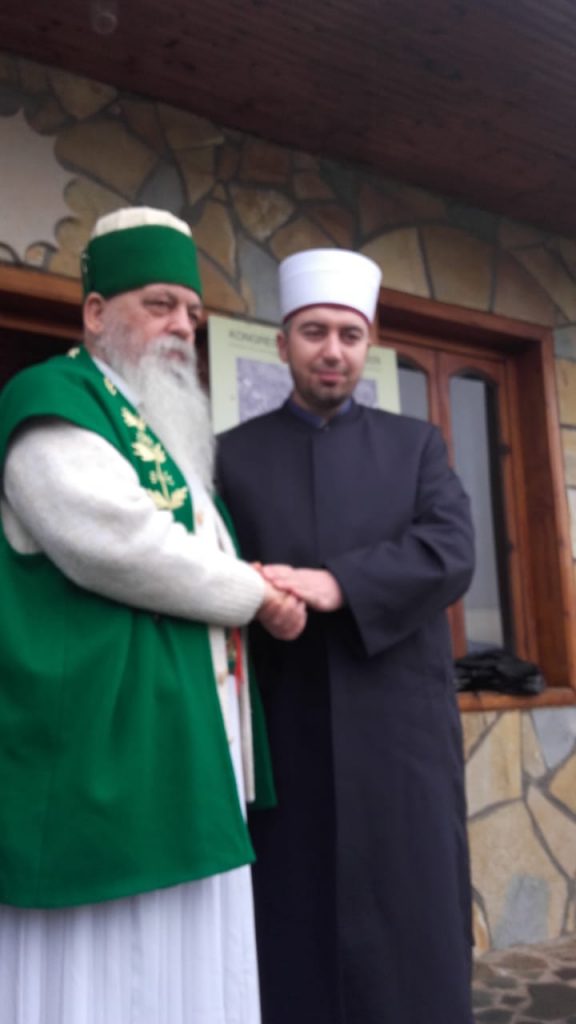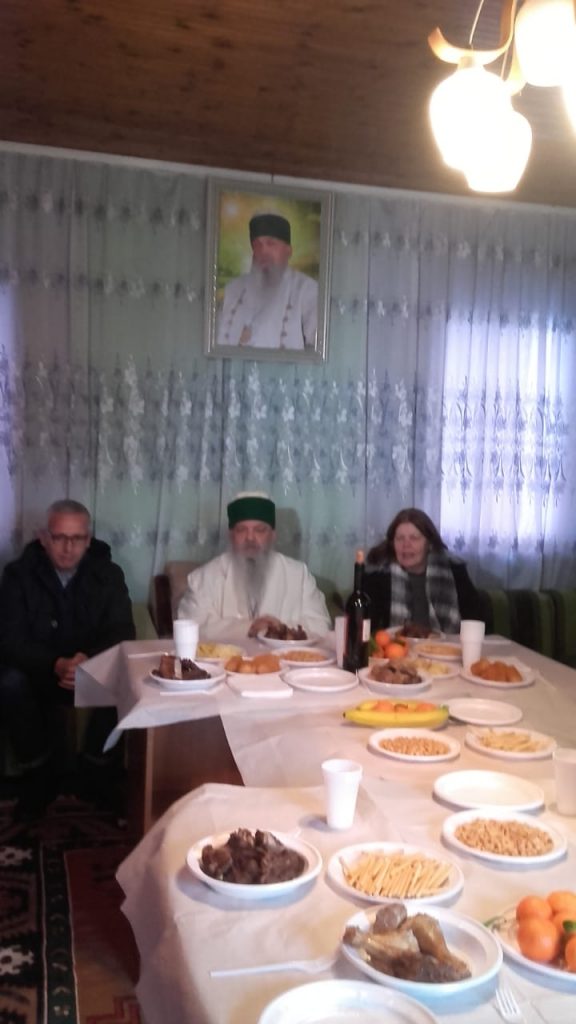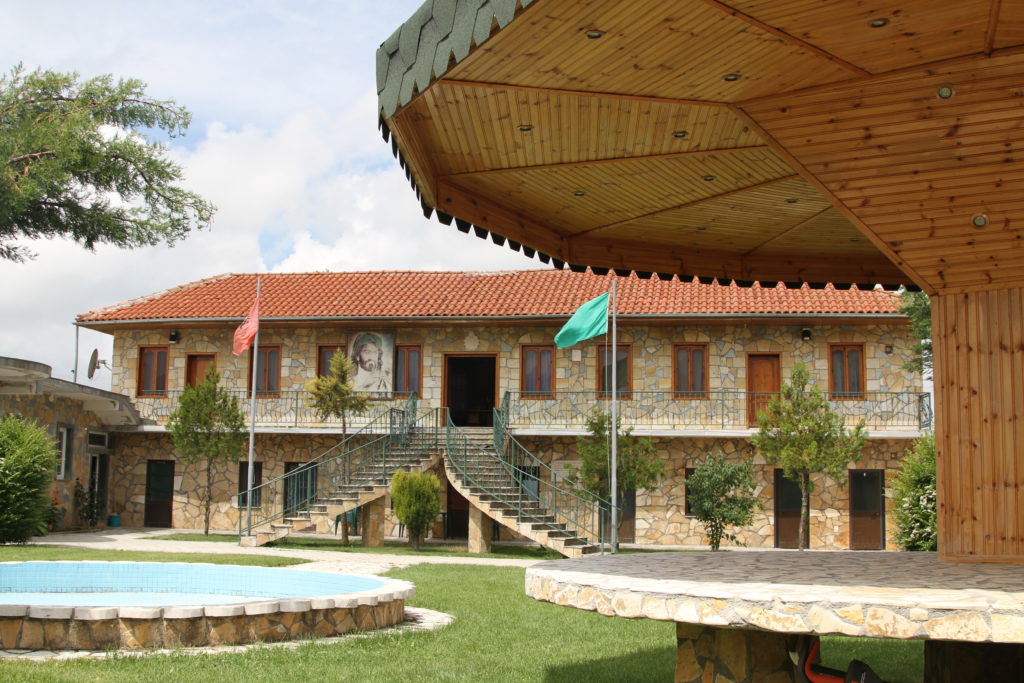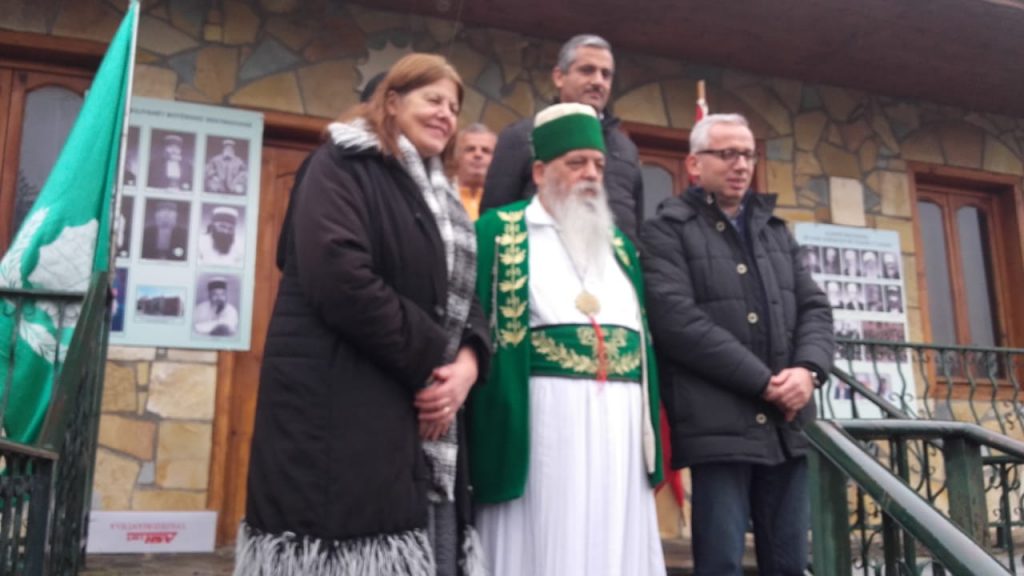
Founded by Salih Baba Elbasani. Many other fathers have served in this tekke ,such as father Seferi, father Ademi, father Hajdari, dervish Filja, father Seit Leskoviku, father Pajua, dervish Hyseni. The tekke played an active role in the national renaissance until the liberation. Here was held the III congress of the Bektashis in 1929. Which took important decisions for bringing the Bektashi World Headquarters in Albania. On January 28, 1930, the Bektashi World Leader Sali Niazi Dede came and led him from the Turan tekke until August 7, 1930, and then he went to the Melçan tekke. But we will note that in implementation of the decisions of the III Bektashi Congress 1929 in the tekke of Turan-Korça, Sali Niazi Dede, came to Albania with a clear idea to increase the Bektashi faith, in the southwest of Christian Europe. This challenge would pass only through the teachings of Haxhi Bektash Veliu. As soon as he set foot on Albanian soil, the prominent Bektashi cleric tried, in addition to the traditional spirit of the Bektashi faith of the ordinary believers. In the letter he sent to his myrshid, father Ali Naxhi Bajkali, in those last days of January 1930, after describing the journey to Albania from Saranda to Korça, he wrote, among other things:… “Going to Turan with twenty-five cars will remain an unforgettable and very precious memory for me. We will stay here for a few days and we will go to Tirana to get the order of the Grandfather “. His placement in the tekke of Turan in Korça, which started the intensive activity for the strengthening of Bektashism in Albania, was of special importance, because it became the first Bektashi Institution in the world in Albania. This was accompanied by meetings of King Zog in February and his appointment as World Bektashi Leader in March of that year. Zog’s government, respecting the will of the Bektashi clergy, appointed Sali Niazi Dede, the World Leader of the Bektashis, in March 1930 by special decree. This can also be seen in an archival document which reads:… ”You are informed that, as after the letter No. 323 dated 20.3.1930, of the Ministry of the High Court, His Highness the King had the kindness to order the decree of the appointment of His Grace, Salih Niazi Dedes, Bektashi Leader ”.
On April 4, 1930, he organized the meeting of the Parents’ Council, taking into account the great needs of the bektashism, and sent a Circular to the Bektashi Paternal and Parental Centers of Albania. In seven points it is written about the appearance in the Presidency of the heads of the Dedeliks and the names of the dervishes and fathers in their tekkes in detail, to follow the orders of the Dedeliks, the appointment of the local council of each Dedeliks, for the best administration of the tekke property, discipline according to the teachings of Haxhi Bektash Veliu etc. A Statement of the Bektashi Parental Council was also prepared for all Bektashi believers of the people of Albania. It states: “This faith has always walked in the right path of God and has preached: love, wisdom, liberty, discipline. “The Bektashi faith has tried to heal every kind of moral or spiritual wound that has brought great pain to the nation from which it is being honored today.” The history of the Turan tekke is glorious. Many revered clerics continued to lead in the years of this tekke.
In this tekke, in 1943, father Zylfo was killed by the communists. The tekke was the center of Korça’s Dedeliks (Korça, Kolonja, Bilisht, Pogradec).
The clergy who led the tekke: Father Sali, father Hajdar Qencka, father Zylfo Vërleni 1940 killed in 1943 and dervish Nevrus Hoçisht, dervish Hajder Melcan, dervish Bektash Ishtip. In the years 1950-1955, grandfather Sabri Kalaja, dervish Tahir Gërxhani, dervish Bektash Nashkollari, dervish Samit Zboqi, dervish Shaqir Gërxhani. Baba Abdulla Çela 1963. Gjysh Ramadan Metaj 1963-1965. Completely rebuilt in 2000 by Father Mondi After the 1990s the clergy led: dervish Barjam Çerçiz Ahmataj dervish Xhelal Resuli, dervish Sali Peti, now a day this tekke is headded by Father Mondi, and secretary Nuri Muçollari.
